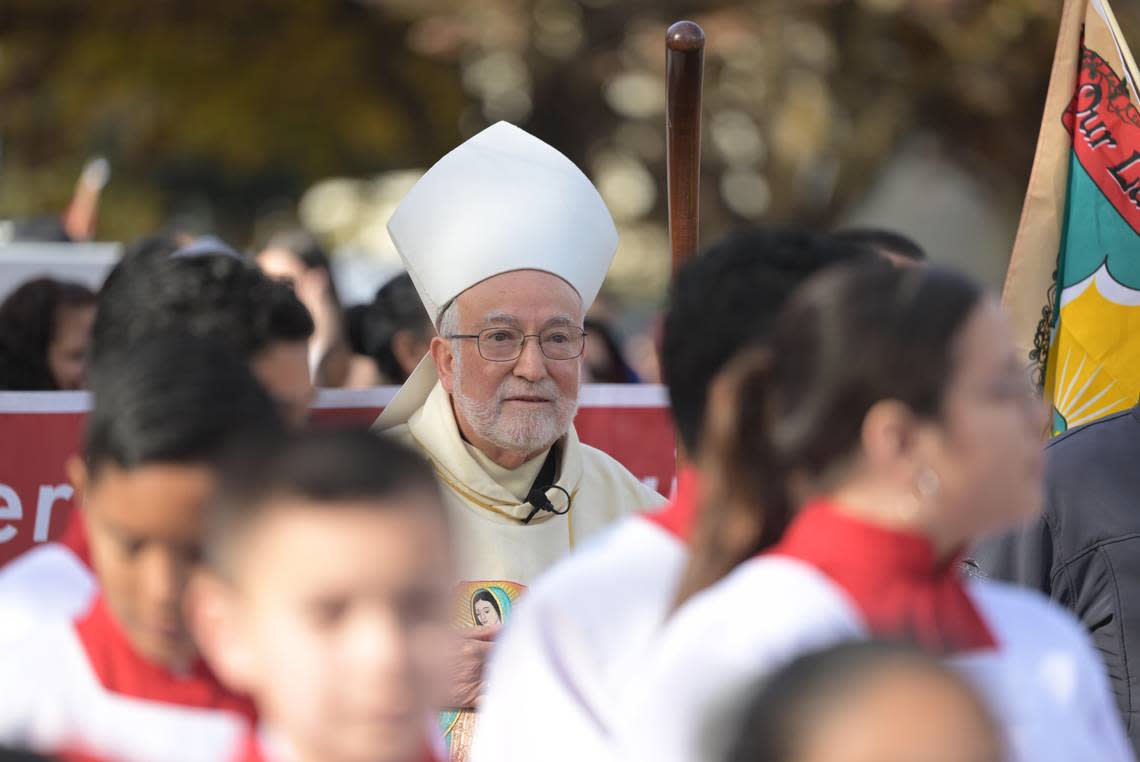Catholic Diocese of Sacramento sets date for planned bankruptcy protection filing
The Roman Catholic Diocese of Sacramento, which announced in December that it planned to file for bankruptcy protection because of a crush of sexual abuse lawsuits, will file with the bankruptcy court on April 1.
“The faithful of the diocese are being notified of the filing date at this weekend’s Masses,” diocese spokesman Frank Lienert wrote Saturday in an email to The Bee.
Bishop Jaime Soto announced in December that the diocese would follow the same path as some other ecclesiastical districts in California, including the Diocese of San Francisco, Diocese of Oakland, Diocese of Stockton and Diocese of Santa Rosa.
Soto said in a statement in December that “it is now clear to me that this is the only way available to me to resolve these claims as fairly as possible.”
“There are many victim-survivors awaiting compensation for the reprehensible sins committed against them,” the bishop wrote in the statement.
“The diocese faces more than 250 lawsuits alleging sexual abuse by clergy or other church staff. The reorganization process will allow me to equitably respond to the large number of those who are victim-survivors of abuse.”

The diocese originally said it expected to file in March, but has now pinpointed April 1 as the date court papers will be filed.
The crush of lawsuits stems from a measure signed into law in California in 2019 that extended the statute of limitations for such cases. Other states have passed similar laws.
The Sacramento diocese has published a list of 46 “credibly accused clergy” who served in the Diocese of Sacramento from 1933 through 2018. Many of them are now deceased, and some are listed as being fugitives from justice.
The diocese has said a bankruptcy filing would not change the church’s duty, but would allow for a financial reorganization and to work toward a settlement of the cases.
Critics of such moves have said a bankruptcy filing could reduce the amount of money plaintiffs might receive if their cases continued in court, and have charged that such a move could allow for the names of some abusers to remain secret.
